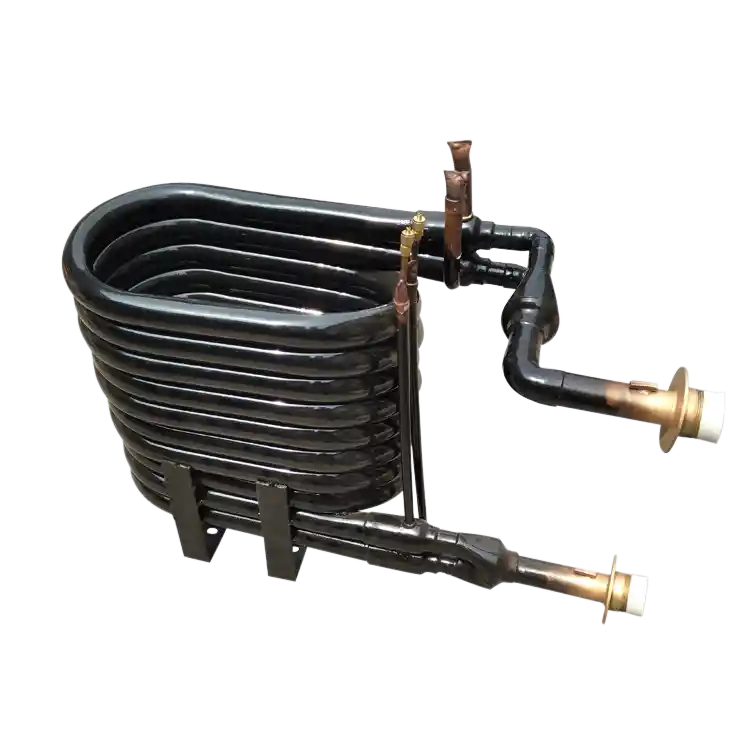Introduction
In this article, we will explore the application of coaxial heat exchangers in the oil and gas industry. Coaxial heat exchangers play a crucial role in optimizing heat transfer, temperature control, and efficiency in various oil and gas operations, leading to improved productivity and cost-effectiveness.
1. Overview of the Oil and Gas Industry
The oil and gas industry encompasses a wide range of activities, including exploration, production, refining, and transportation. Coaxial heat exchangers offer significant benefits in this industry by providing efficient heat transfer solutions, enabling precise temperature control, and enhancing overall operational performance.
1.1 Importance of Heat Transfer in Oil and Gas Operations
Efficient heat transfer is critical in various oil and gas processes, such as heating, cooling, and vaporization. Coaxial heat exchangers play a vital role in facilitating efficient heat transfer between fluids, allowing for effective energy utilization and process optimization.
1.2 Role of Coaxial Heat Exchangers in the Oil and Gas Industry
Coaxial heat exchangers offer several advantages in the oil and gas industry, including:
| Benefits | Descripción |
|---|---|
| Enhanced Heat Transfer | Coaxial heat exchangers provide efficient heat transfer between fluids, enabling faster and more effective heating or cooling processes. |
| Temperature Control | By regulating the heat exchange between fluids, coaxial heat exchangers allow precise temperature control, ensuring optimal operational conditions. |
| Corrosion Resistance | Coaxial heat exchangers are constructed with materials resistant to corrosion, making them suitable for handling various fluids encountered in the oil and gas industry. |
| Compact Design | The compact and space-saving design of coaxial heat exchangers makes them suitable for installations with limited space availability, such as offshore platforms or compact processing units. |
2. Applications of Coaxial Heat Exchangers in the Oil and Gas Industry
Coaxial heat exchangers find diverse applications in the oil and gas industry, contributing to improved efficiency, safety, and cost-effectiveness.
2.1 Oil Refining
Coaxial heat exchangers are extensively used in oil refining processes to facilitate heat transfer in various stages, including crude oil heating, cooling, and product separation. They enable efficient energy utilization and temperature control, resulting in improved refining efficiency and product quality.
2.2 Natural Gas Processing
In natural gas processing operations, coaxial heat exchangers play a vital role in heat transfer applications, such as gas cooling, condensation, and reboiling. They assist in removing impurities, separating components, and maintaining optimal process conditions, enhancing the efficiency of natural gas processing plants.
2.3 Gas Compression and Transmission
Coaxial heat exchangers are employed in gas compression and transmission systems to regulate the temperature of compressed gases. They facilitate effective heat exchange, preventing overheating of gases during compression and ensuring stable and efficient transmission through pipelines.
2.4 LNG (Liquefied Natural Gas) Facilities
LNG facilities rely on coaxial heat exchangers for the liquefaction and regasification of natural gas. Coaxial heat exchangers enable efficient heat transfer during the liquefaction process, allowing for the safe storage and transportation of natural gas in its liquid form. During regasification, they assist in vaporizing LNG back to its gaseous state.
2.5 Offshore Platforms and Subsea Systems
Coaxial heat exchangers find applications in offshore platforms and subsea systems, where space is limited, and environmental conditions are challenging. They provide compact heat transfer solutions, enabling efficient temperature control and enhancing the overall performance of offshore oil and gas operations.
Conclusion
Coaxial heat exchangers play a crucial role in enhancing various aspects of the oil and gas industry. Their efficient heat transfer capabilities, precise temperature control, corrosion resistance, and compact design contribute to improved productivity, cost-effectiveness, and operational safety. By leveraging the benefits of coaxial heat exchangers, the oil and gas industry can optimize its processes, reduce energy consumption, and ensure sustainable operations.


